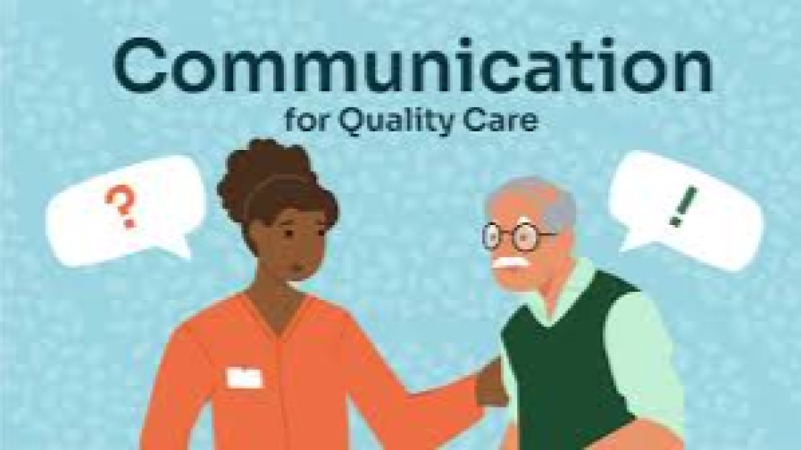Effective Communication for Quality Improvement Training Course
Effective Communication for Quality Improvement Training Course has been designed to equip participants with practical skills and techniques to enhance interpersonal communication, workplace collaboration, and problem-solving abilities.

Course Overview
Effective Communication for Quality Improvement Training Course
Introduction
In todayΓÇÖs dynamic and competitive business environment, effective communication is one of the most powerful drivers for quality improvement across all organizational levels. Clear communication ensures that employees, teams, and leaders can collaborate efficiently, make informed decisions, and address performance gaps that may affect service delivery. Organizations that invest in communication training witness significant improvements in quality management, customer satisfaction, and operational excellence. Effective communication fosters accountability, builds trust, and enhances the quality of outcomes by reducing misunderstandings and aligning strategies with organizational goals.
Effective Communication for Quality Improvement Training Course has been designed to equip participants with practical skills and techniques to enhance interpersonal communication, workplace collaboration, and problem-solving abilities. With a focus on trending quality improvement methodologies, participants will explore real-world case studies, learn communication strategies to improve workflow, and develop effective channels for team engagement. By the end of the course, participants will understand how communication directly influences quality outcomes, improves organizational performance, and builds long-term competitive advantage.
Course Objectives
- To enhance communication strategies for effective quality management.
- To develop active listening and feedback techniques for performance improvement.
- To promote clarity and accuracy in organizational messaging.
- To strengthen collaboration across teams for improved project outcomes.
- To reduce communication barriers that hinder quality improvement initiatives.
- To build trust and accountability through transparent communication.
- To integrate communication tools with quality improvement frameworks.
- To improve conflict resolution through effective communication.
- To align communication processes with customer satisfaction strategies.
- To increase employee engagement through motivational communication.
- To foster leadership communication for continuous improvement.
- To evaluate communication effectiveness using quality indicators.
- To apply case study lessons in real workplace communication challenges.
Organizational Benefits
- Improved customer satisfaction through enhanced communication.
- Increased efficiency in quality improvement initiatives.
- Reduced operational errors through accurate communication.
- Strengthened collaboration across departments.
- Higher employee engagement and morale.
- Improved problem-solving and decision-making.
- Enhanced leadership communication.
- Reduced conflict in workplace interactions.
- Alignment of quality goals with organizational strategy.
- Long-term improvement in organizational performance.
Target Audiences
- Quality managers
- Team leaders and supervisors
- Human resource professionals
- Customer service representatives
- Healthcare professionals
- Project managers
- Administrative staff
- Organizational leaders
Course Duration: 5 days
Course Modules
Module 1: Fundamentals of Effective Communication
- Understanding communication models
- Barriers to effective communication
- Importance of feedback in communication
- Communication styles in organizations
- Role of communication in quality improvement
- Case study: Miscommunication and its impact on service delivery
Module 2: Active Listening and Feedback
- Principles of active listening
- Techniques for effective feedback
- Encouraging open dialogue in teams
- Listening to identify improvement opportunities
- Feedback as a quality improvement tool
- Case study: Feedback-driven process improvement
Module 3: Communication Tools for Quality Management
- Digital communication platforms
- Visual communication for quality reporting
- Use of dashboards and reports
- Integrating tools with quality frameworks
- Communication policies for consistency
- Case study: Digital tools in quality improvement projects
Module 4: Team Collaboration and Communication
- Building collaborative communication practices
- Enhancing interdepartmental communication
- Role of meetings in quality projects
- Encouraging knowledge sharing
- Communication for innovation and creativity
- Case study: Team collaboration in quality initiatives
Module 5: Conflict Resolution through Communication
- Identifying sources of conflict
- Communication techniques for conflict resolution
- Building consensus through dialogue
- Mediation and negotiation skills
- Communication for maintaining workplace harmony
- Case study: Conflict resolution in quality improvement teams
Module 6: Customer-Centered Communication
- Understanding customer communication needs
- Aligning communication with customer expectations
- Building trust with customers
- Communication for customer feedback integration
- Improving service quality through communication
- Case study: Customer feedback driving quality change
Module 7: Leadership Communication in Quality Improvement
- Role of leaders in communication
- Inspiring teams through effective messaging
- Transparency in leadership communication
- Communicating vision and goals for quality improvement
- Leadership as a driver of organizational culture
- Case study: Leadership communication transforming quality practices
Module 8: Measuring and Evaluating Communication Effectiveness
- Key performance indicators for communication
- Assessing communication strategies
- Using surveys and assessments
- Continuous improvement in communication practices
- Linking communication metrics to quality outcomes
- Case study: Evaluating communication in a quality improvement project
Training Methodology
- Interactive lectures and discussions
- Real-life case study analysis
- Group activities and role plays
- Practical exercises and simulations
- Peer-to-peer learning and feedback
- Visual presentations and multimedia resources
Register as a group from 3 participants for a Discount
Send us an email: info@datastatresearch.org or call +254724527104
Certification
Upon successful completion of this training, participants will be issued with a globally- recognized certificate.
Tailor-Made Course
We also offer tailor-made courses based on your needs.
Key Notes
a. The participant must be conversant with English.
b. Upon completion of training the participant will be issued with an Authorized Training Certificate
c. Course duration is flexible and the contents can be modified to fit any number of days.
d. The course fee includes facilitation training materials, 2 coffee breaks, buffet lunch and A Certificate upon successful completion of Training.
e. One-year post-training support Consultation and Coaching provided after the course.
f. Payment should be done at least a week before commence of the training, to DATASTAT CONSULTANCY LTD account, as indicated in the invoice so as to enable us prepare better for you.